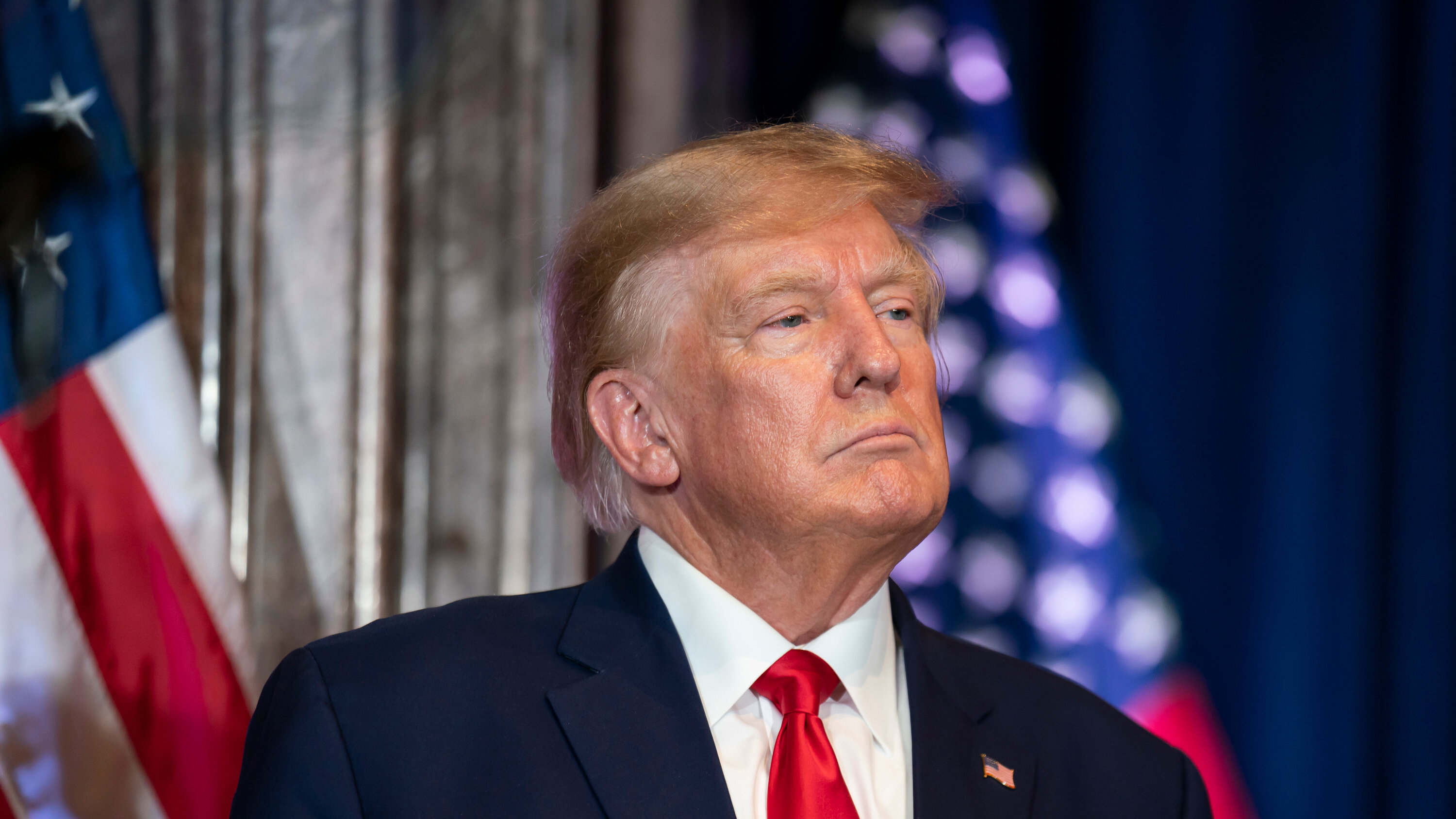Trump Just Won: The Latest Developments In His Political Journey
The political landscape in the United States has always been dynamic and filled with unexpected turns, but one thing is certain: Donald Trump remains a significant force. As the news breaks that "Trump just won," many are left wondering what this means for the future of American politics. With a career characterized by controversy, charisma, and a unique ability to connect with his base, Trump's latest victory has ignited debates across the nation.
In recent months, Trump's influence has only grown, fueling speculation about his potential return to the presidency. This article aims to explore the implications of this victory, the factors that contributed to it, and what lies ahead for Trump as he navigates the complexities of American politics. As we delve deeper, we will investigate the reactions from both supporters and opponents, examining how Trump's win could reshape the political landscape moving forward.
Moreover, "Trump just won" is not just a phrase; it encapsulates a broader narrative regarding his commitment to his agenda and the unwavering support he enjoys among his followers. Understanding this phenomenon requires a close look at Trump's biography, his political maneuvers, and the socio-political context in which he operates. Join us as we dissect the intricacies surrounding Trump's recent victory and its potential ramifications for the country.
Who is Donald Trump? A Brief Biography
Donald John Trump was born on June 14, 1946, in Queens, New York City. He is the fourth of five children in the Trump family and the son of real estate developer Fred Trump. Growing up in a wealthy family, Trump attended the New York Military Academy, where he developed a competitive spirit and leadership skills. He later graduated from the Wharton School of the University of Pennsylvania with a degree in economics.
Key Personal Details and Bio Data
| Attribute | Details |
|---|---|
| Full Name | Donald John Trump |
| Date of Birth | June 14, 1946 |
| Birthplace | Queens, New York City |
| Education | Wharton School of the University of Pennsylvania |
| Occupation | Businessman, Television Personality, Politician |
| Political Party | Republican |
| Years Active | 1971 - Present |
| Spouse | Melania Trump (married 2005) |
What are the Implications of "Trump Just Won"?
With the announcement that "Trump just won," political analysts are keen to understand the implications of this victory. This success not only reinvigorates Trump's political capital but also raises questions about the future of the Republican Party. Will Trump's triumph galvanize his supporters to further consolidate their power, or will it lead to a fragmentation within the party?
How Did Trump Secure This Victory?
Trump's recent success can be attributed to several factors, including his unwavering base, strategic campaigning, and a keen understanding of the issues that matter to his supporters. He has effectively utilized social media platforms to communicate directly with his audience, bypassing traditional media channels that he often criticizes. Furthermore, Trump's ability to tap into the sentiments of American voters—particularly regarding the economy and immigration—has played a crucial role in solidifying his support.
What Role Did Media Play in Trump's Victory?
The media landscape has always been a double-edged sword for Trump. While he has often faced criticism and negative coverage, he has also mastered the art of using media to his advantage. By dominating headlines and controlling narratives, Trump has successfully kept himself relevant in the political discourse. This media savvy has undoubtedly contributed to the "Trump just won" narrative, as he continues to shape public perception.
What Do Supporters Say About Trump's Win?
The reactions from Trump's supporters have been overwhelmingly positive. Many believe that his victory signals a return to conservative values and policies that prioritize American interests. Supporters often express their admiration for Trump's unapologetic approach to governance, viewing him as a disruptor who is unafraid to challenge the status quo.
What Are the Concerns of Trump's Opponents?
Conversely, Trump's opponents voice significant concerns regarding his leadership style and policies. Critics argue that his approach has divided the nation and exacerbated social tensions. They fear that "Trump just won" may lead to further polarization in an already fractured political landscape. As the debate rages on, the question remains: can the nation find common ground moving forward?
What Lies Ahead for Trump and His Political Future?
Looking ahead, the future of Trump in politics appears promising, especially with the support he has garnered. Speculations about a potential run for the presidency in the next election cycle are rampant. As we analyze the landscape, it’s essential to consider how this victory may impact not only Trump's political ambitions but also the strategies of other candidates within the Republican Party.
How Can We Summarize the Current Political Climate?
The current political climate is marked by intense emotions and divergent viewpoints. As "Trump just won" reverberates through the media and social platforms, it serves as a reminder of the underlying divisions present in American society. The challenge ahead lies in navigating these complexities while fostering constructive dialogue among citizens.
What Can We Learn From Trump's Journey?
Trump's journey in politics offers valuable lessons about resilience, communication, and the importance of understanding your audience. His ability to connect with voters on a personal level has reshaped the way political campaigns are conducted. As we reflect on the implications of "Trump just won," it is crucial to consider how future leaders can learn from his successes and failures.
Conclusion: The Aftermath of "Trump Just Won"
In conclusion, the announcement that "Trump just won" is a pivotal moment in American politics. It underscores the complexities of the political landscape and highlights the deep-seated divisions that exist within the nation. As we move forward, it is essential to engage in thoughtful discussions about the direction of the country and the role that leaders like Trump will play in shaping its future.
Article Recommendations


